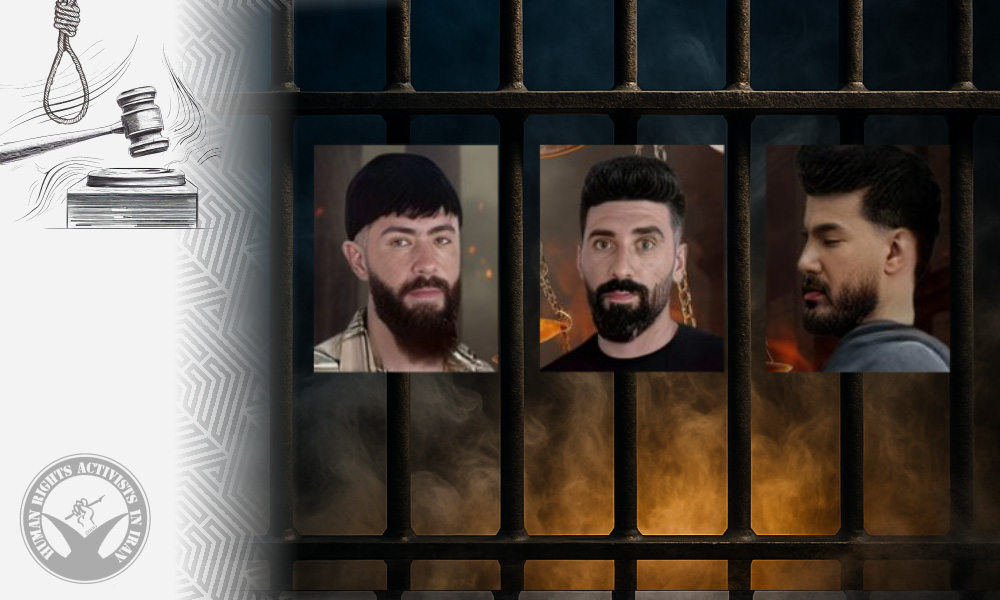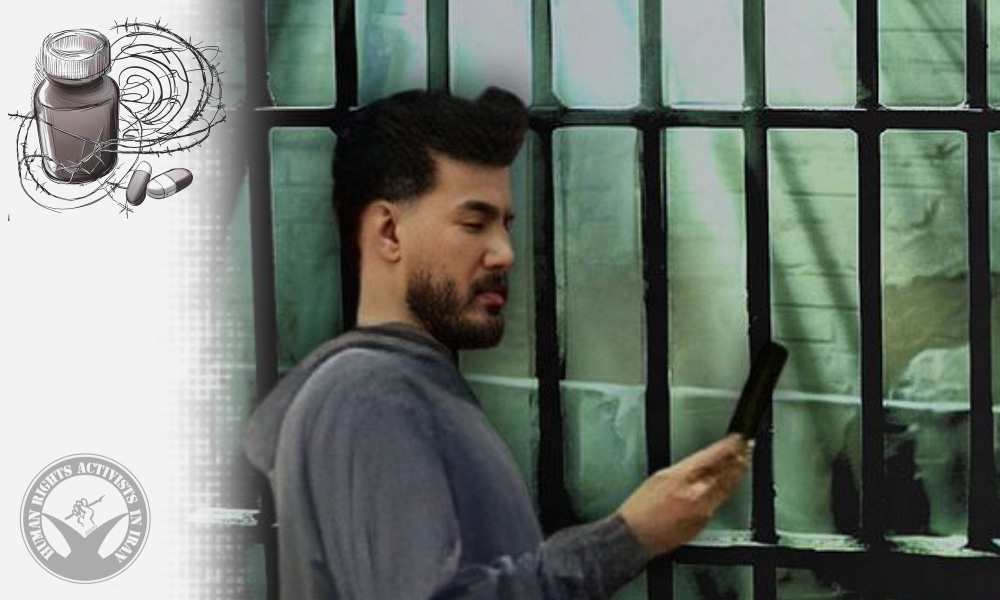HRANA – The death sentences of Masoud Jamaei, Alireza Mardasi, and Farshad Etemadifar, political prisoners held in Sheiban Prison in Ahvaz, have been upheld by the Supreme Court. These prisoners had previously been sentenced by the Ahvaz Revolutionary Court to two death sentences each, plus one year in prison.
Earlier this year, Branch 1 of the Ahvaz Revolutionary Court, presided over by Judge Adibimehr, had sentenced each of them to two death sentences and one year in prison on charges of “corruption on earth,” membership in baghi (insurgent) groups, and “propaganda against the regime.”
In the same case, Saman Hormatnejad and Davood Hormatnejad were sentenced by the same court to 12 and 15 years in prison, respectively, on the aforementioned charges. No new information has been obtained so far regarding the latest status of their cases.
In the text of the rulings, membership in the Mojahedin-e Khalq Organization (MEK) was cited as the basis for the charges. This case is considered one of the heaviest security-related rulings issued in recent months in Khuzestan Province.
A source familiar with the case, who requested anonymity for security reasons, told HRANA: “These individuals spent about the past two years in temporary detention without clarity on their legal status. During their detention, they were denied access to lawyers and adequate medical care. The rulings were communicated to them despite gross violations of fair trial principles. The confessions attributed to the defendants were taken under coercion and in inhumane conditions.”
Farshad Etemadifar, Saman Hormatnejad, and Davood Hormatnejad were arrested on June 16, 2023, by Ministry of Intelligence agents. Masoud Jamaei and Alireza Mardasi were arrested on August 1, 2023, by security forces in Ahvaz and transferred to Sheiban Prison.
Following their arrests, Tasnim, an outlet close to the IRGC, claimed in a report that these citizens were connected to the “Monafeqin (hypocrites) network” and intended to carry out “disruptive operations” in the provinces of Khuzestan, Fars, and Kohgiluyeh and Boyer-Ahmad.
It should be noted that in the terminology of the Islamic Republic, the terms “Nefaq” and “Monafeqin” refer to the Mojahedin-e Khalq Organization, one of the Iranian opposition groups.
Farshad Etemadifar is from Kohgiluyeh and Boyer-Ahmad Province, and Masoud Jamaei and Alireza Mardasi (Hamidavi) are residents of Ahvaz. Masoud Jamaei, 47, suffers from liver issues and stomach cancer. His physical condition in prison has deteriorated severely, and he requires urgent treatment and transfer to specialized medical facilities outside the prison. Prior to his arrest, he worked for the National Iranian Oil Company. In late March of last year, he, along with his wife Zeinab Hazbapour and their children Nahid, Dalal, and Roghayeh Jamaei, had been tried by the Bavieh Revolutionary Court on charges of links with one of the groups opposing the regime.





